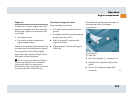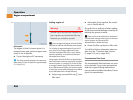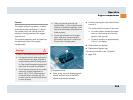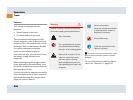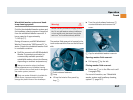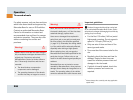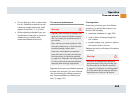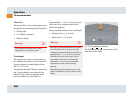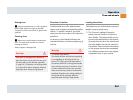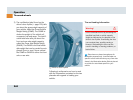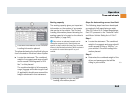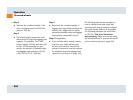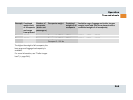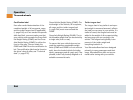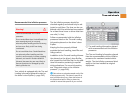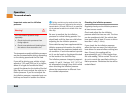
261
Operation
Tires and wheels
Storing tires
Cleaning tires
Direction of rotation
Unidirectional tires offer added advan-
tages, such as better hydroplaning perfor-
mance. To benefit, however, you must
make sure the tires rotate in the direction
specified.
An arrow on the sidewall indicates the
intended direction of rotation (spinning) of
the tire.
Loading the vehicle
Two labels on your vehicle show how much
weight it may properly carry.
1) The Tire and Loading Information
placard can be found on the driver’s
door B-pillar. This placard tells you im-
portant information about the number
of people that can be in the vehicle and
the total weight that can be carried in
the vehicle. It also contains information
on the proper size and recommended
tire inflation pressures for the original
equipment tires on your vehicle.
!
Keep unmounted tires in a cool, dry place
with as little exposure to light as possible.
Protect tires from contact with oil, grease and
gasoline.
!
Never use a round nozzle to power wash
tires. The intense jet of water can result in
damage to the tire.
Always replace a damaged tire.
Warning! G
Have worn or damaged tires replaced in
pairs (front pair or rear pair) an make sure
the tires rotate in the direction specified
(
୴ page 261). Otherwise, the driving stabili-
ty of the vehicle will be adversely affected,
especially when driving at high speeds.
Warning! G
19" turbine-style wheels:
The wheels must be mounted corresponding
to the labelling on the inside of the rim,
where LEFT refers to the left-hand side of
the vehicle and RIGHT to the right-hand side
of the vehicle, both seen in direction of trav-
el. When unidirectional tires are mounted,
make sure that they rotate in the direction
specified. Otherwise, the driving stability of
the vehicle will be adversely affected,
especially when driving at high speeds.



